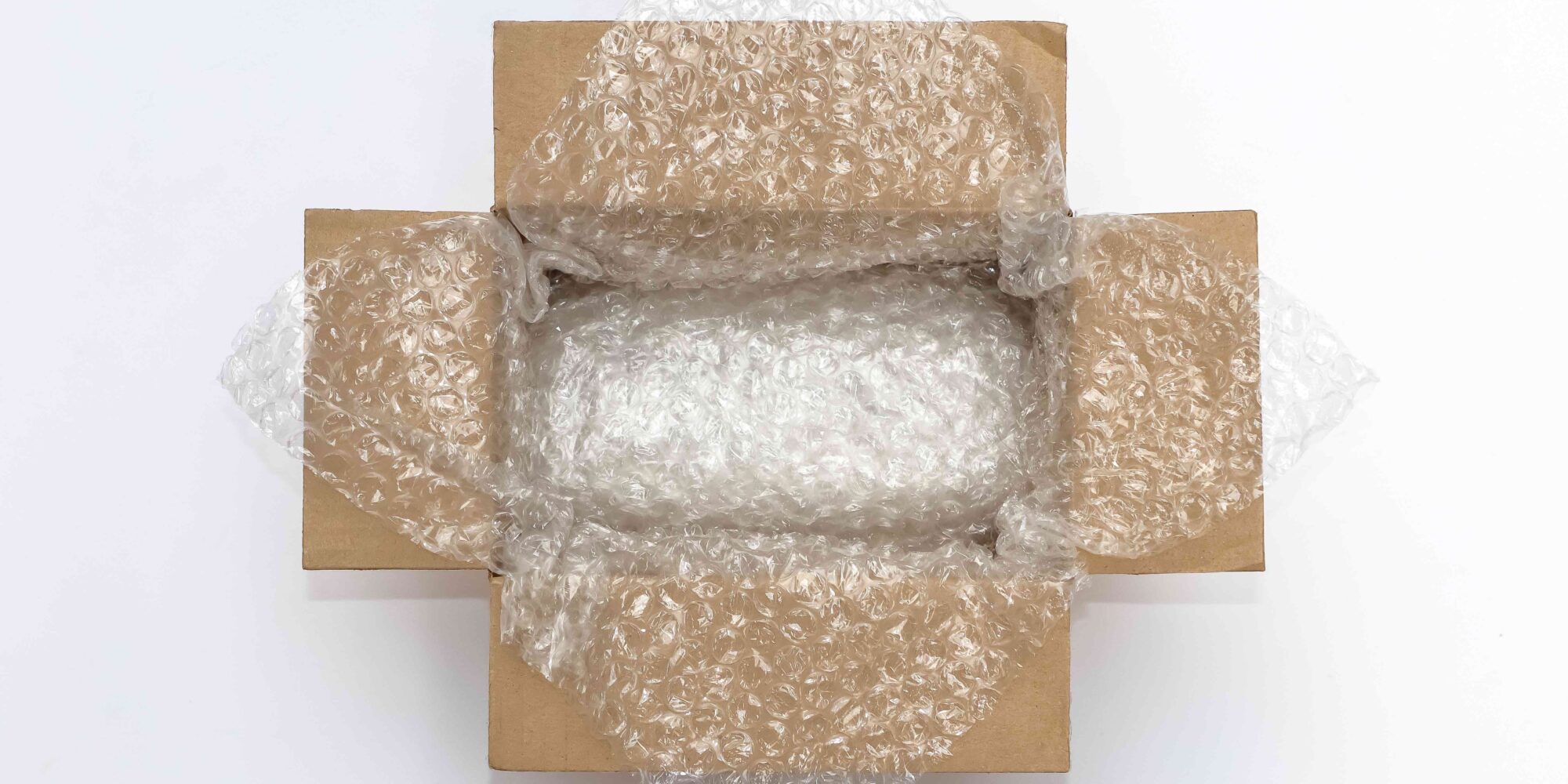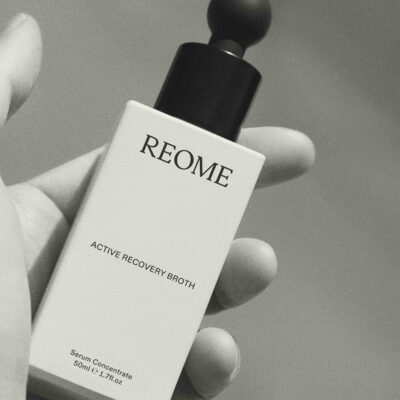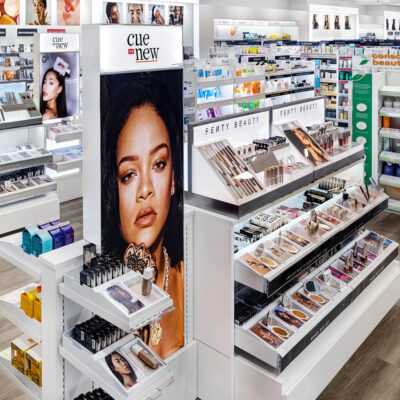
Is Greenwashing One Of Beauty’s Biggest Trends? Brand Founders Reveal How They See It Happening
In this edition of Beauty Independent’s ongoing series posing questions to beauty entrepreneurs, we ask 17 founders and executives: Have you seen examples of false sustainability claims in the beauty industry?
- Bee Joy España Co-Founder, Simple Alchemy Co.
Unfortunately, my partner Col and I see this all the time. A headline or caption about an "eco" company will catch our eyes, and we'll get all excited. There's a particular home and body subscription service I'm thinking of that touts being sustainable, but we went to check out their catalog and every single thing is packaged in plastic.
There's another company that's making really awesome, gender-inclusive underwear and swimwear, etc. They talk about sustainability and ethics all the time, and we actually ordered from them. Our order came in plastic inside of more plastic. It's incredibly frustrating to go through all the work and research to find products that meet our environmental standards, only to discover their commitment to being green only goes surface deep.
- Jennifer Edwards Creator and Chemist, Refinne
There are always going to be false claims out there surrounding terms that are not regulated. Things like "organic" and "gluten-free" are regulated terms requiring certification, clean beauty is not. I encourage everyone to look into the brands they are supporting. We intentionally engage family-owned businesses, use recycled and recyclable packaging, and source scalable plant-based ingredients. We are careful about our wording to ensure no false claims are made. It’s up to customers to exercise their power in doing the research and supporting truthful brands.
- Sara Kyurkchieva Founder, Orpheus Skin
We’ve noticed a lot of unsubstantiated sustainability claims from brands as sustainability has become the next big thing. Our society needs more sustainable living solutions in every aspect and not just in the beauty industry. The confusion around sustainability claims is largely attributed to the fact it’s hard to be completely sustainable, and there are always new realizations and solutions coming about.
There are certainly many sustainable practices that brands can adopt. It’s just a growing process for brands to commit to. The lack of a clear definition for the term "sustainable means" each brand’s interpretation will look different, from sustainably produced and sourced to using fully recycled packaging.
I have personally engaged in conversations with brands that claim sustainability to be at their core, while being fully packaged in plastic and having nothing substantial to support their claim. What makes me even more upset is their ludicrous response: “Plastic is much lighter than glass, so it cuts down on carbon emissions while transporting and reduces our breakage and damages.” It’s such a shame, and I do hope that the beauty community continues to hold those brands accountable.
- Jessika Carter-Ross Owner and Founder, Madam J Beauty
During our time, I have noticed false marketing claims of both clean beauty and sustainability to attract customers within this dynamic. It's the same as companies using the term "natural" for beauty products, when in fact it's a gray area. We use plant-based ingredients to make our beauty products, and 98% of our products are packaged in glass jars, which are recyclable and sustainable. We continue to find more ways to be sustainable and we are always transparent about the process. I think if more companies explicitly stated their sustainability efforts instead of being vague, they would be viewed in a better light.
- Alexia Wambua Founder, Native Atlas
I think that everyone can do a better job of educating the consumer on what is sustainable about their brand. This includes being transparent about sustainable sourcing and the evolution of the production. The first ingredient that comes to mind is sustainable palm oil and its effect on deforestation as it is actually harmful to the natural habitats of endangered species. We believe it’s important for the customer to be able to understand the process of creating the product from beginning to end. From there, they can determine how sustainable the brand is from process to completion.
- Aleena Khan Co-Founder, CTZN Cosmetics
We have not seen specific brand examples. However, it is unfortunate that, due to COVID-19 hygiene concerns, we are seeing an increase in single-use plastic at a time where awareness on sustainability is heightened. We have never claimed to be a sustainable brand. However, we have plans in place on how we can improve in the next few years. For now, we try to be sustainable by creating multipurpose or double-ended products that reduce the need for producing multiple products with individual functions.
- Jennifer Freitas Founder, The Truth Beauty Company
When I think of sustainability, what first comes to mind is packaging. I have yet to encounter false marketing claims about the sustainability of a brand's packaging. I think this is in part because for the longest time the attention has been given to ingredients, how natural and how non-toxic they are. The playing field has evened a bit, so now the focus is shifting to examining the vessels the products are housed in.
However, as someone who has been in the clean industry for a long while, I have questioned why some “clean” brands over-package, for example, make their 1-oz. product look as though it is four ounces because of their choice of bottle. This has always felt wasteful to me: bigger packaging, more weight to ship and the carbon footprint increases. I actually appreciate society taking a look and demanding better!
- Paayal Mahajan Founder, Essential Body Couture Skincare
With the growth in the trendiness of clean and green beauty, yes, there has been an absolute rise in false marketing claims. One only needs to read how brands describe their products and you quickly see how much jargon is built into claiming sustainability. We fail to recognize that when a natural ingredient begins to trend, the market demand for that ingredient rises. That means overharvesting, demand on farmers to produce more, faster—it is an endless cycle. There is also confusion in the consumers’ minds about the difference between sustainable, clean, green and organic. And brands continue to add to that confusion to make quick profits.
I have a degree in environmental policy, so I actually know what it takes to create an organic farm, to actually source ingredients organically, and that organic does not automatically mean sustainable. There is a difference. The demand for trendy ingredients, for pushing farms to go organic faster, all of it has an impact on the ecology of that area. Water tables are impacted. Farmers’ livelihoods are impacted. It is not that simplistic. For a farm to turn entirely organic takes large investments in cleaning the soil over a period of years. It is impossible to have clean soil devoid of pesticides and toxins within a few months. The water source has to be pure, which means going deeper into the water table. And that is just the tip of the iceberg.
Customers value transparency and authenticity. My customers come to me exhausted from being sold fluffy narratives by brands and confounded by the use of unnecessary jargon. They just want what works, to feel better, and to use products that give them real results.
- Rachel Lambo CEO and Co-Founder, Sade Baron
I personally have not seen the sustainability claim. It is super important to be transparent with your claims and ability to perform those. It's easier to say, “We don't have this, but are working on getting there someday soon,” rather than provide false information. It also hurts your brand and you lose trust.
- Robbin Turner Founder and Formulator, Violet Botanical Skincare
When we hear sustainability, we think of packaging and some ingredients. One ingredient that should be at the top of every company's list of ingredients to conserve is water. Water is used as a solvent in cosmetics. Thousands of liters of water are used in the manufacturing of products. Learning to innovate with water conservation in mind will lessen the impact on the environment. Did you know cream formulations are comprised of 60% to 85% water? Lotions are comprised of up to 90% water. Shower gels or shampoos are comprised of up to 95% water.
We are living in a time of global water scarcity. Increased temperatures due to global warming cause water to evaporate from the land and oceans. Only 1% of water on Earth is drinkable and accessible. Remember spring 2018? Cape Town, South Africa almost ran out of water. Water-free products alleviate demand on water. Until we severely reduce water usage throughout the manufacturing process of cosmetics, marketing claims around sustainability are questionable.
- Heather D'Angelo Founder, Carta
I haven't seen any examples of this, and I hope it's untrue! Sustainability is deeply important to me. It's one of the main reasons that I started Carta in the first place. My many years at Columbia University researching the ecological impacts of oil palm plantations in Malaysia gave me firsthand experience with seeing the detrimental effects of large scale monoculture agriculture.
Now, as a perfumer, I've applied this experience to the choices I make with sourcing and packaging. When I learned how environmentally problematic the essential oil industry is, I made it my mission as a perfumer to only use sustainably-sourced essential oils and to supplement ingredients sourced from over-harvested species with synthetic analogs. I also chose very minimal packaging. All of it is made from recycled paper and my perfume bottles are also refillable.
The beauty industry still has a very long way to go with sustainability. Falsifying claims isn't going to get there. We need to work together as a community to help evaluate each other's supply chains and find better solutions from sourcing to manufacturing, especially for us small business/low-minimum-order-quantity folks who have fewer available options.
In San Francisco, I'm part of a small community of sustainable perfumers who meet monthly to discuss these issues and also to hold each other accountable. I'd love to see similar groups pop up in small business communities on a nationwide scale.
- NIKITA MONTGOMERY Owner and Founder, Hazel O. Salon
Companies are trying to keep up with increased conversations around clean and sustainable beauty, which oftentimes causes them to make claims about current products that aren't exactly true. While we haven't uncovered any false marketing claims from brands or products that we've used, we have found that companies are capitalizing off of salons who may not be aware of the ins and outs of sustainability. We've been more diligent in researching companies that claim to use sustainable products so that we are properly educating our customers and not relaying false messages.
- Evelyn Subramaniam Founder, Bija Essence
I have seen and lived examples of false claims around sustainability. Numerous times, I have visited a sustainable or clean beauty section excited to find eco-friendly packaging to only discover excessive plastic on secondary packaging and some on [primary] packaging. Or I have ordered a sustainable beauty product by mail to be disappointed when opening the package because it was filled with peanut packing or bubble wrap! This is toxic to the environment. These companies use partial eco-friendly packaging only.
In addition, some big brands use too many toxins that harm the environment such as preservatives. Interestingly, there are companies that do not pay the minimum wage to their employees, especially when they employ staff in foreign companies. Sustainability is a subjective term. However, it should create a positive impact on society, economy and environment.
We strive to be sustainable as much as possible. We use glass for the first packaging that can be recycled. Our bottle is multifunctional and can be used in different ways, such as a vase- accessory. Our secondary packaging is cardboard, which is biodegradable. Our packaging filler is recycled newspaper. We are fair trade, which is providing fair wages. Our oil products are 100% natural and do not harm the environment. In addition, we are cruelty-free and vegan.
- Allison McNamara Founder, Mara
The beauty business, like many other industries, sees trends come and go. There is a lot of inspiration drawn from trends, too, which makes new buzzwords, ingredients or practices inevitable to be followed and picked up by others. We saw this happen with the clean beauty space, and a myriad of mass and mainstream brands “greenwashing,” making claims like “all-natural” and using buzzwords like “cruelty-free” and “vegan” to convince customers they were using clean formulas.
Right now sustainability is on the rise, and many brands are doing what they can to make better choices and help the planet around them through their business practices. False marketing claims around sustainability are harder to sleuth out. For example, recycling in the U.S. really boils down to your MRFs (Materials Recovery Facility). Once your recycling is picked up, it’s delivered to an MRF that is contracted to sort out the materials by your city.
The MRF is where materials like glass and paper get sorted, prepared and marketed to then sell to companies who repurpose these recycled materials. However, each MRF is different, and there really is no guarantee that something will get recycled unless you do the work as a brand to look at what your city’s MRF accepts and doesn’t accept. Yet, this only applied to your city, whereas consumers could be purchasing from cities around the nation and even internationally, which has its own set of standards.
There is also the conversation around PCR and bio-based plastics and, while these are definitely sustainable options, as of now, these containers are at the end of their recycling cycle. Meaning, even though they are made from recycled materials (post consumer waste, for example), most MRFs do not have the functionality to recycle these items.
Sustainability also can be practiced through the materials used in your formula. We don’t want to harm or place a burden on natural resources, so we do the research to ensure our ingredients are sustainable. One of our main ingredients is moringa, which is incredibly drought resistant and easy to grow, which makes it wonderfully sustainable. Brands who truly care about sustainability need to look at the 360 approach: packaging, formula, manufacturing, and carbon footprint, are all important pillars to consider before claiming to be sustainable.
- JENNIFER SAUL Senior VP of Marketing, C’est Moi
The biggest issues are surrounding the fact that there are no perfect definitions of both what clean beauty and what sustainable really mean. I see examples of false marketing every day. Formulas that still contain some of the most toxic ingredients are being marketed and claiming to be clean everyday. Just because you eliminate parabens, sulfates and are cruelty-free does not make you a clean brand. We stand behind our responsibility as a company to create clean and thoughtfully formulated products for our customers, and that is why our products are EWG verified clean. We meticulously formulate our products to ensure that we are creating affordable, high-performing clean beauty for anyone that has sensitive or blemish prone skin.
Companies claiming that their packaging is sustainable is quite a stretch. Presently, our country is not actually recycling much of anything! We stopped shipping all of our trash, scrap and recyclables to China in January of 2018. This has been our lifeline for waste and recycling for decades, and it is gone. There are few material choices that companies can look to establish sustainability within their packaging.
Moving into glass, paper, wood, metal and PCR (post consumer resin) are becoming popular, but expensive alternatives to virgin plastics. Even ocean plastic has become a source for sustainable packaging stories. There really isn’t much that is perfect or clear regarding what is the best sustainable solution for packaging that provides the least amount of impact to our environment. If our country isn’t recycling it anyway, what are we really calling sustainable? It needs a place to go.
This is why we have partnered with TerraCycle. We are super excited for our program to launch in July, where consumers can request a free envelope and will receive free shipping to ensure they send in their empty C’est Moi recyclable packaging to be officially recycled by the TerraCycle team. Here are some good resources on recycling in the U.S.
- Michael CANEPA Co-Founder, Kidskin
I have noticed a trend on sustainability. I’m not familiar with any brands that have false marketing claims. We are currently switching to more sustainable packaging. It’s challenging to find certain types of bottles such as airless pumps that are 100% recyclable. We’ve found two companies, one from Germany and one from Brazil. We should have a decision on which one we’re switching to in the next month or so.
- Brittany HohlPartner, Beach House PR
We saw a huge problem with sustainability in the beauty industry back in 2017 when we kicked off our Change The Beauty Game initiative. Our goal was to not only put a spotlight on the unnecessary excess in beauty, but to really encourage both PR firms and brands to drastically cut back on their waste contributions. The industry was using so much stuff to showcase their products that their product was no longer front and center. Not to mention, this packaging was causing serious damage to the environment. What we learned?
1). Editors, brands, and PR firms really do want this change to happen and are super willing to contribute to that change.
2). Sustainable packaging is costlier, but you can find some really great, trendy and affordable options.
3). By removing all the fluff, products and messaging start to become the real focus again.
If you have a question you’d like Beauty Independent to ask beauty entrepreneurs, please send it to editor@beautyindependent.com.






Leave a Reply
You must be logged in to post a comment.